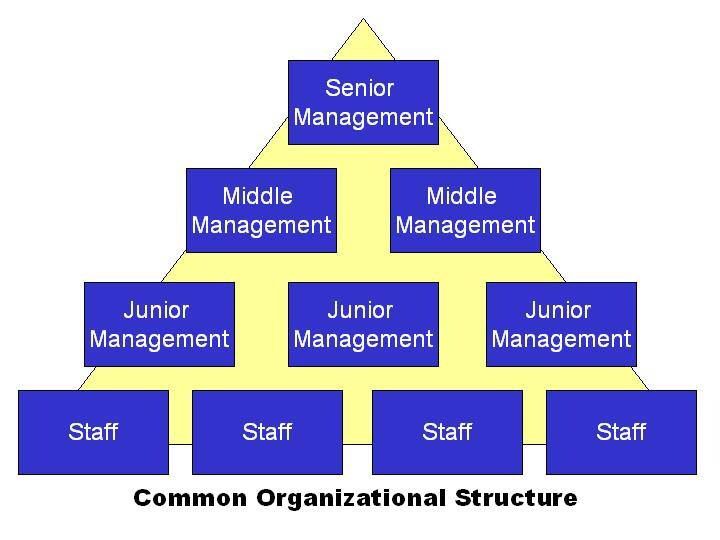|
Word Gems
exploring self-realization, sacred personhood, and full humanity
Editor's Essay
|
one’s image or model of God will fashion and direct one’s metaparadigm in life and conduct in the world
|
return to the main-page article on "Image Of God: Part I"
|
Dr. Marcus Borg:
How we think about God, how we mentally image Divinity, affects the entire subsequent flow of our theology. We will treat others, and ourselves, as we imagine God treating us... it is creating God in our own image.
|
There are various models of the nature and meaning of “God”. I'd like to list a few and then comment.
Here’s the most popular:
#1. the top-down command-style model of authority

We see it everywhere in the world; it’s the structure of corporations, churches, the military, marriages, politics, and other venues.
It’s the favorite organizational structure of an elite, at the top of a pyramid, intent upon maintaining power and control.
And if we see God as a kind of commander, or father, or CEO, or king, or similar autocrat, then #1 will make sense to us and seem to be the only way things could exist.
But, depending on one's frame of mind, there are other possible models of what God might be.
#2. the 'central hub' model of authority

This model of God sees us as “all connected.”
Each of us, and each element of creation, is a spoke in the wheel of life, connected to God at the center.
God is Universal Consciousness and each of us, individualizing consciousness-units, is connected, not only to Source but, to each other via the 'central hub'.
#3. the 'honeycomb' model of authority

Here, the authority and essence of God is decentralized.
Equality is emphasized. Each cell of the honeycomb is like any other.
But how could this be possible? Are there not degrees of wisdom, ability, maturity, and the like?
Editor's commentary
The afterlife testimonies indicate that the meaning of “God” is debated even on the other side.
The discussion tends to revolve about two major concepts: Is God a person, a being, or merely a force, a principle, of nature?
Ands there are some who believe God is both:
|
The following is from Flashes of Light from the Spirit-land, through the mediumship of Mrs. J. H. Conant, by Allen Putnam, Frances Ann Conant, 1872.
Question. ls the Deity a being, or is he a principle pervading all Nature? If the latter, why do you address him as a being, in the invocation?
Answer. That our God is a personal, and also an impersonal God, is equally true. Since the God-power or God-life is everywhere, he, it, or she is of course personified everywhere. I believe in the worship of all that is worthy of worship. If it is the flower, let us worship there. If it is the human soul, let us worship there. If it is a lofty thought, let us worship there. Wherever we see anything, or perceive any state, either of mind or matter, that is worthy of worship, there we should worship.
All Spiritualists, I believe, consider God to be an infinite principle pervading all forms, occupying all space. I believe this. I have seen nothing during my life in the spirit-world to cause me to believe otherwise, I did not believe it when here [on Earth].
But the Book of Life hath been so widely opened to me since death, that I can come to no other conclusion than that God is a principle pervading all forms, and occupying all space. God is in the atmosphere, and is the atmosphere. God is in the sunlight, and is the sunlight. God is the sun and the shadow. He is everything, and is in all places. It is absolutely useless to endeavor to confine God to any particular place or state of being, for could we do that, we should rob God of the God-power. We should at once chain this great eternal principle, this infinite life, to finite space [thus limiting God]. We should [by this confinement of God] at once bring it down within the scope of [limited] human analysis.
And I, for one, am glad we cannot. But we have been so in the habit of addressing this Deity, this Power of Life, as though it were a [mere] man or woman, a [mere human] personality like ourselves, that it is very hard to change our course ... as I before remarked, our God is a personal God, and therefore it is proper that we should thus address him.
|
father
Many in Summerland, however, including Father Benson, refer to God as “Father.” This would align with #1, above.
Further, adherence to #1 would easily lead to a view of authority -- which is the case among some Spirit Guides even in Father Benson’s “neighborhood” -- as something of a power display with a “pecking order”. I severely criticized this concept of authority in this article.
mother-father
Instead of “Father,” not infrequently, those over there will speak of God as “Mother-Father.”
This would suggest, it seems to me, an orientation approximating #2, more of a cosmic family of interconnectedness.
Elizabeth Fry and decentralization
A very important understanding of the nature of God comes to us from Spirit Guide Elizabeth Fry. In her service group, an equality exists. Different ones will serve as project leader at different times, depending on the needs of the project and who’s good at what. No top-down command structure.
This is an example of #3. See much discussion here.
the Gospel of Thomas
The Gnostics who wrote the Gospel of Thomas spoke a great deal of the “inner light,” or universal consciousness.
We all have this, they said, and we’ve had it since “the beginning” when we were with God.
This is a view of equality, #3, and connectedness, #2, as well.. See the article.
Paul's house churches
Everyone was allowed to speak. It was acknowledged that each person was taught by God on an individidual basis. This is the equality of #3.
|
each gets a chance to say something on how God personally offered a lesson
|
“So here’s what I want you to do. When you gather for worship, each one of you be prepared with something that will be useful for all: Sing a hymn, teach a lesson, tell a story, lead a prayer, provide an insight… Take your turn, no one person taking over. Then each speaker gets a chance to say something special from God, and you will all learn from each other.”
the apostle Paul, I Corinthians 14:26-33, The Message translation
|
"A universal theology is impossible," says the Course In Miracles, "but a universal experience is not only possible but necessary." Paul’s small-group house-churches brought this principle to life in a practical way.
Each person was encouraged to share with the group how she or he had received an insight or lesson-for-living from God. Memorizing or quoting scripture was not emphasized, as the resultant numerous interpretations would only divide the group and then the world into thousands of sects and denominations; instead, Paul instructed,
“Tell us how God taught you personally, even in a small way, this past week. Maybe just a glimpse or brief flash of light. When you searched your own mind, when you meditated and communed with your own soul, what did you see, what were you given from God?”
God has no favorite kids but impartially teaches all, individually, who are willing to learn. God does not offer knowledge with a closed-shop, command-style, holier-than-thou, top-down pedagogy. The letters of John, as well, declare that God, via the spirit, will personally teach us about all the big issues of life (I John 2:27). This is the real "word of God," delivered to each human heart and mind, opened to receive it.
There can be no societal division or separation when religion is approached with this non-hierarchical, non-dogmatic, individual-centered mode of teaching but, instead, a “universal experience” based upon each person’s account of God’s private tutoring.
| William Ralph Inge, (1860-1954), Dean of St. Paul's Cathedral, London: "On all questions about religion there is the most distressing divergency. But the saints do not contradict one another. They all tell the same story. They claim to have had glimpses of the land that is very far off." |
Editor's note: Paul’s decentralized formulation of religious instruction reflects not only a respect for the dignity of each individual but a Gnostic perspective.
A pastor friend of mine, a good man, when he read the above item concerning Paul’s house-churches, commented with sincerity: “But isn’t there a danger in following one’s own ‘revelation’? How can we know if these messages are from God?” I responded, “Yes, there is a danger. For this to work as it should, one must be very honest with oneself, and not veer into illusion. The dysfunctional ego loves to wear a mask of piety and it will attempt to deceive with thoughts of pride and self-promotion.”
All this acknowledged, let us explore the alternative. The caution voiced by the pastor, in various forms, has been codified as official position in the Church at large: “The people are sheep. They will go astray if there is no representative of God to lead them. Thinking for oneself is the playground of the Devil (if there were such a being). Much better for all to adhere to time-honored doctrine; this way, we all speak the same thing, which promotes harmony and unity in the Church.”
In other words, that “alternative” is to allow someone else to do your thinking for you. Surrender your brains when you walk through the church door. Keep your opinions to yourself; better yet, stifle them, and believe.” The very word heresy means “opinion.”
The so-called “Church Fathers,” writing in the few hundreds of years after the time of Christ, often attacked the Gnostics, authors of “The Gospel Of Thomas” and many other documents (some of which pre-date the canonicals). In the missives of “the Fathers” the Gnostics were lampooned for allowing followers of Jesus to offer their own “revelations” at church meetings, pretty much exactly in line with what Paul promoted in Corinthians. “They trust in their own imaginations,” said the Fathers, “are all over the place with various crackpot ideas and concepts. Who can keep track of them all? This will end badly with a great many splinter-groups representing a hodge-podge of beliefs.”
Strangely, history unfolded precisely opposite to what “the Fathers” predicted. The Gnostics, allowing each to speak, with their many interpretations of how God works in the world, enjoyed relative peace and harmony – while “the Fathers,” the forerunners of Big Religion, would witness, over time, their efforts at strict mind-control devolving into tens of thousands of factions which have divided Christendom to this day, and continue to do.
|
overlapping models of God
View #1 could be appropriate for little children, as they still view parents as surrogate of God. However, even in this case, I think we would want to begin to introduce elements of #2 and #3.
Elizabeth’s model is the way organizations should be run on the other side. This allows for the Spirit of God to effectively lead all projects.
Oftentimes, #2 and #3 could be profitably combined, depending on what needs to be emphasized.
Concerning equality and #3, we, all of us, are equal in the sense that we all share in the same divine universal consciousness. In this sense, concerning this collective, it could be said that “God is a force” or “a principle,” in that, we all add something, increasingly so, to the God-Force of the universe.
Is God also a supreme person? I suspect this to be the case – else how did we come to have personhood? As we are connected to Source, as we are one with God, how could we be persons without God sharing in this?
There is much mystery here, few final answers, and it might always be this way.
|
Editor's last word:
Those who worship the god of materialism, money, force, sensuality, also craft their lives according to their own private conceptions of what’s real and most important.
The principles discussed above also apply to the materialists and their god of mammon.
Everything they do, say the great psychologists, even the very structure of civilization, represents their flight from the fear death, and the gnawing inner sense of “I don’t have enough” because “I am not enough.”
Meditate on these things to see its truth.
|
|


